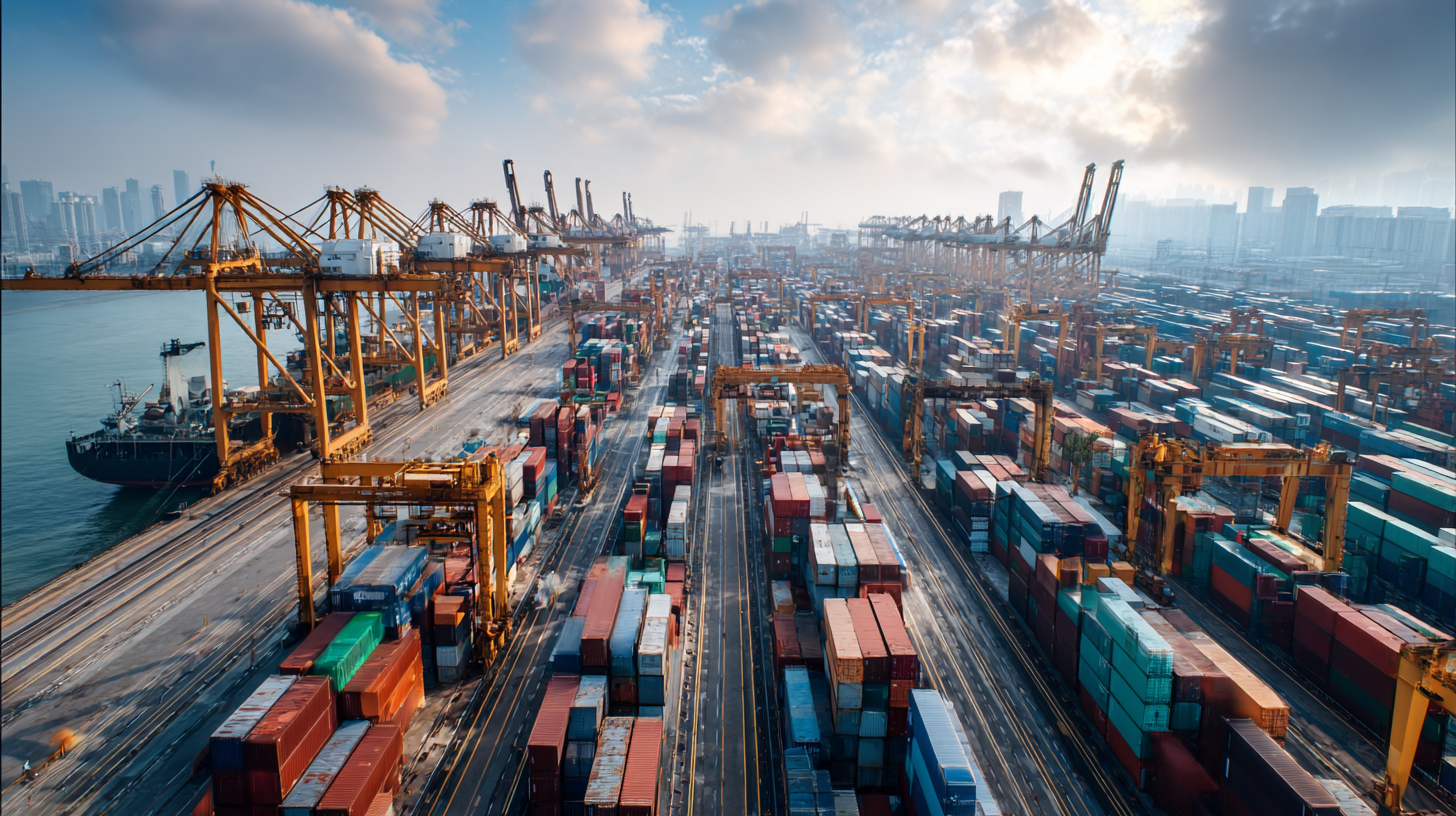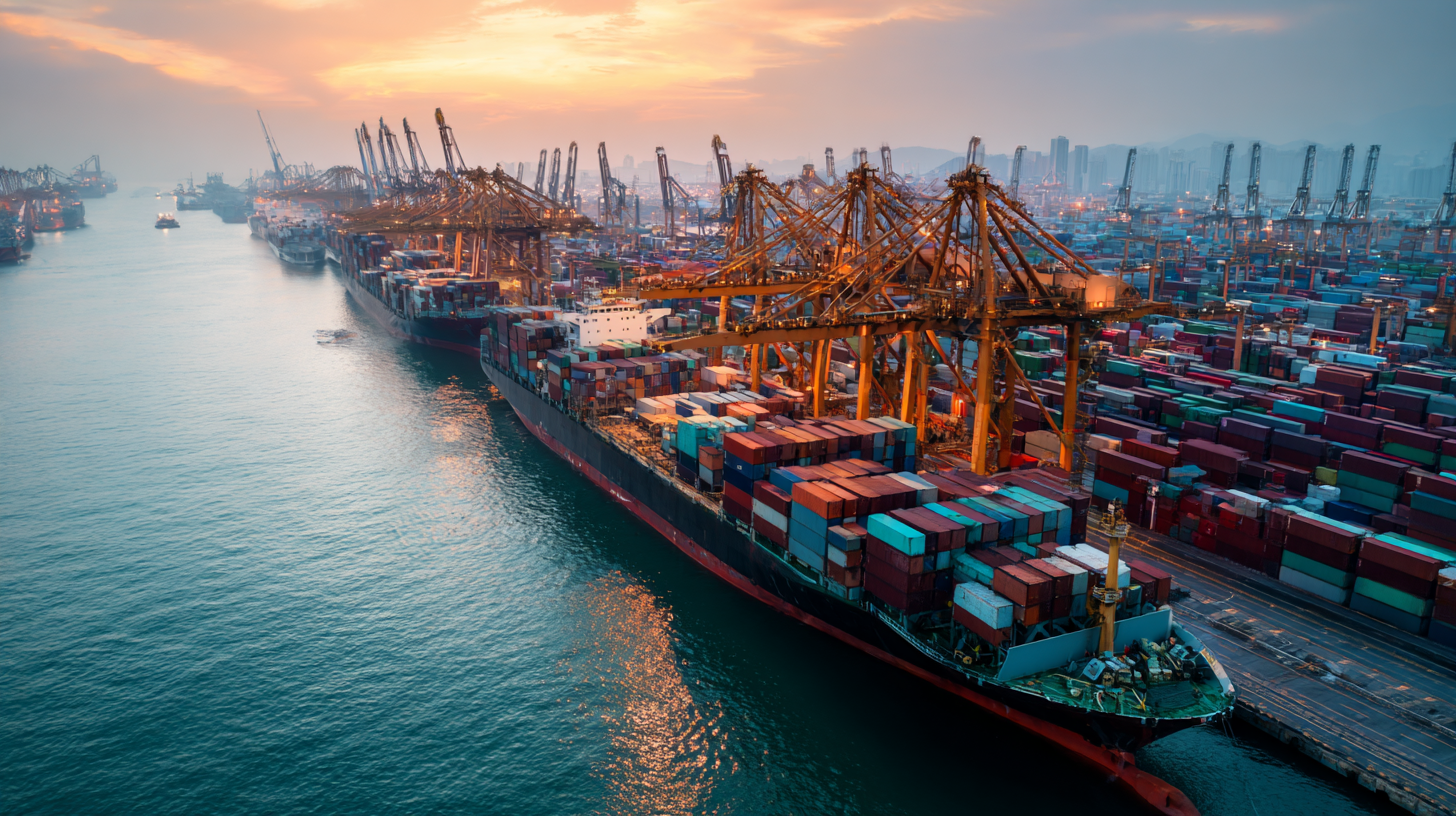

As global trade evolves, the role of suppliers is becoming increasingly pivotal in shaping the future of sourcing. According to the Global Supply Chain Report 2023, over 75% of companies expect to rely on their suppliers more than ever to enhance operational efficiencies and drive innovation. With advancements in digital technologies, suppliers are not only streamlining processes but also providing valuable insights that help businesses make informed decisions and adapt to market changes rapidly. A recent survey by Deloitte highlighted that 67% of executives believe their suppliers are crucial for achieving sustainability goals, underscoring the critical nature of supplier partnerships in today's interconnected marketplace. As we navigate this new era of sourcing, understanding the dynamics between suppliers and global trade will be essential for organizations aiming to thrive on the competitive landscape.

In today's competitive landscape, effective Supplier Relationship Management (SRM) is not just a tool but a necessity for organizations seeking to improve cost efficiency and mitigate risks. According to a report by Deloitte, companies that implement a strategic approach to SRM can reduce procurement costs by up to 20%, significantly enhancing their bottom line. By fostering closer collaboration with suppliers, businesses can achieve better pricing, prioritize quality, and enhance innovation, ultimately leading to a leaner supply chain.
Moreover, strong supplier relationships play a critical role in risk mitigation. Research from the Wall Street Journal indicates that firms with robust SRM programs experience 30% fewer supply chain disruptions compared to their peers. In a volatile global trade environment, proactive risk management through supplier partnerships can help organizations navigate uncertainties, ensuring continuity and stability. As companies increasingly recognize the value of strategic SRM, it becomes clear that cultivating these relationships is essential for navigating the complexities of modern trade while maintaining a competitive edge.
This bar chart illustrates the effect of supplier relationship management practices on cost efficiency and risk mitigation across various industries, highlighting the importance of strong supplier relationships in global trade.
In the evolving landscape of global trade, leveraging technology through data analytics has become crucial for businesses in selecting and monitoring their suppliers. By utilizing real-time data, companies can gain insights into supplier performance, enabling informed decision-making that enhances supply chain efficiency. Advanced analytics tools allow organizations to evaluate potential suppliers based on various metrics such as price, quality, and reliability, ensuring they partner with the best in the industry.
**Tip: Implement a robust data collection system** to gather relevant supplier performance metrics consistently. This will help in quickly identifying trends and potential issues before they escalate, allowing for proactive management of supplier relationships.
As data analytics continues to advance, organizations can harness predictive analytics to anticipate supply chain disruptions and mitigate risks. By analyzing historical data patterns, businesses can foresee potential challenges and adapt their strategies accordingly.
**Tip: Regularly review and adjust your selection criteria** based on evolving market conditions and insights from data analytics. This agility in supplier management can significantly improve a company’s competitive edge in the global market.

In today’s increasingly conscious market, sustainability in sourcing has emerged as a pivotal focus for leading suppliers aiming to revolutionize ethical trade practices. According to a report by McKinsey, 66% of consumers are willing to pay more for sustainable brands, which highlights the growing demand for ethical sourcing. Suppliers are responding by integrating sustainable practices into their supply chains, such as utilizing eco-friendly materials, reducing carbon footprints, and ensuring fair labor practices. Companies like Unilever have set ambitious targets, aiming to make all of their plastic packaging recyclable, reusable, or compostable by 2025, showcasing how leading firms are taking active steps toward sustainable trade.
Moreover, a study by the Global Reporting Initiative revealed that organizations adopting sustainability practices not only enhance their brand reputation but also positively impact their financial performance. Companies that embed sustainability into their sourcing strategies can experience a 10-20% increase in operational efficiency. As they focus on transparency and traceability, suppliers are leveraging technology—such as blockchain—to provide solid proof of their ethical sourcing practices. This shift is not merely a trend; it's a profound transformation that is reshaping global trade dynamics and setting new standards for accountability in sourcing.

The future of sourcing hinges upon the integration of digital platforms that enhance global supply chain visibility. As organizations navigate increasingly complex supply chains, the ability to monitor and manage every link is pivotal. Research indicates that companies investing in digital visibility tools can achieve a 10-15% reduction in supply chain costs while improving service levels significantly. This transformation is not only about efficiency but also about fostering collaboration among stakeholders across borders.
**Tip:** Invest in real-time tracking solutions to gain insights into your supply chain operations. This will help you identify bottlenecks and respond promptly to challenges, thereby streamlining processes.
Moreover, events like the recent supply chain expo highlight the urgency for industries to adopt intelligence-driven solutions. For example, as organizations harness the power of data analytics, they can predict demand fluctuations and mitigate risks associated with geopolitical uncertainties. Reports show that firms leveraging such technologies see up to a 25% improvement in their response times to market changes.
**Tip:** Utilize predictive analytics to forecast trends and align your sourcing strategies accordingly. Being proactive rather than reactive can give you a significant edge in an ever-evolving marketplace.
| Supplier Type | Number of Suppliers | Digital Platform Usage (%) | Supply Chain Visibility Score (1-10) | Collaboration Index (1-100) |
|---|---|---|---|---|
| Local Suppliers | 1500 | 80% | 8 | 75 |
| International Suppliers | 800 | 65% | 6 | 60 |
| E-commerce Suppliers | 300 | 90% | 9 | 85 |
| Manufacturer Suppliers | 600 | 75% | 7 | 70 |
The future of global trade is increasingly shaped by supplier diversification, a strategy that businesses are leveraging to enhance their resilience against disruptions. According to a recent report from McKinsey, companies that adopt diversified sourcing strategies can reduce their exposure to risk by up to 30%. This is particularly relevant in a world prone to supply chain interruptions, as firms seek to mitigate vulnerabilities demonstrated during recent global crises.
Emerging trends indicate that businesses are not only looking for reliable suppliers but are also diversifying across geographical locations and sectors. A study by Deloitte found that 70% of firms are actively investing in multi-supplier strategies to bolster supply chain security. By broadening their supplier base, companies enhance their adaptability to market fluctuations and geopolitical changes, making them less susceptible to total disruptions.
**Tip 1:** Evaluate your current supplier dependencies and explore alternatives in different regions to spread risk effectively.
**Tip 2:** Regularly assess supplier performance and market conditions to stay informed about potential risks and opportunities in your supply chain.
By prioritizing diversification, companies can fortify their operations against unforeseen challenges and maintain a competitive edge in global trade.